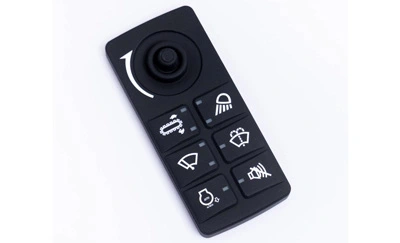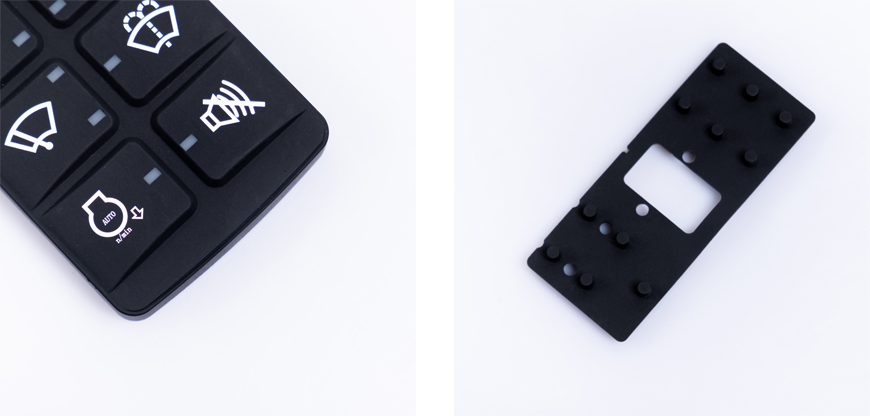
In today's fast-paced world, where technology plays a pivotal role in our daily lives, the importance of user-friendly interfaces cannot be overstated. Membrane switch keypads have emerged as a crucial component of various electronic devices, offering a seamless and intuitive user experience. In this comprehensive guide, we will delve into the world of membrane switch keypads, exploring their structure, applications, advantages, and more.

Membrane switch keypads are interface devices that consist of several layers of flexible materials, primarily polyester or polycarbonate. These layers are equipped with conductive traces and graphic overlays, creating a compact and durable keypad. The design of membrane switch keypads allows for efficient tactile feedback and ease of use.
1. Top Graphic Layer
The top layer of a membrane switch keypad is the graphic overlay. This layer not only displays the key labels but also serves as a protective barrier, preventing dust and moisture from entering the keypad.
2. Spacer Layer
Beneath the graphic overlay lies the spacer layer, which contains openings corresponding to each key. These openings maintain a gap between the top and bottom layers, ensuring that keys do not make contact unless pressed.
3. Bottom Circuit Layer
The bottom circuit layer consists of conductive traces made of silver or copper. When a key is pressed, it bridges the gap between the bottom circuit layer and the top graphic layer, completing an electrical circuit.
1. Durability
Membrane switch keypads are known for their durability, as they are resistant to wear and tear. This makes them ideal for applications in harsh environments.
2. Cost-Effective
Compared to mechanical keypads, membrane switch keypads are cost-effective to manufacture, making them a preferred choice for many electronic devices.
3. Customization
Graphic overlays can be customized to meet the specific requirements of a device, including colors, symbols, and branding elements.
Membrane switch keypads find applications in various industries, including:
1. Medical Devices
They are used in medical equipment such as infusion pumps and diagnostic devices due to their easy-to-clean and hygienic nature.
2. Industrial Control Panels
Membrane switch keypads are prevalent in industrial control panels, where they withstand challenging conditions.
3. Consumer Electronics
From microwave ovens to remote controls, membrane switch keypads enhance the user experience in numerous consumer electronics.
To ensure the longevity of membrane switch keypads, it's essential to follow proper maintenance procedures. Regularly clean the keypad with a mild detergent and a soft cloth, avoiding abrasive materials that could damage the graphic overlay.
In conclusion, membrane switch keypads are a vital component in the world of electronics, providing durability, cost-effectiveness, and customization options. Understanding their structure, advantages, and applications can help you appreciate their significance in various industries.
1. Are membrane switch keypads waterproof?
Yes, many membrane switch keypads are designed to be waterproof, making them suitable for outdoor and wet environments.
2. Can membrane switch keypads be backlit?
Absolutely! Membrane switch keypads can be designed with backlighting, enhancing visibility in low-light conditions.
3. How long do membrane switch keypads typically last?
The lifespan of membrane switch keypads can vary depending on usage and environmental factors, but they are known for their durability and longevity.
4. Are membrane switch keypads easy to repair?
In most cases, membrane switch keypads are not easily repairable, and it's often more cost-effective to replace them.
5. Can membrane switch keypads be used in automotive applications?
Yes, membrane switch keypads are used in automotive applications, including in-car entertainment systems and control panels.